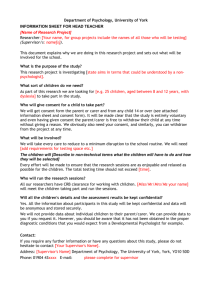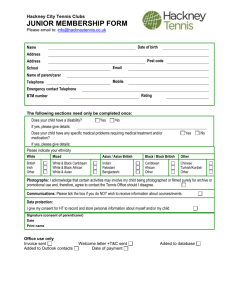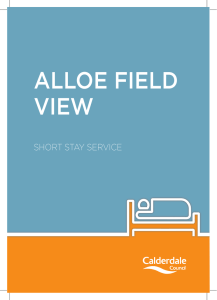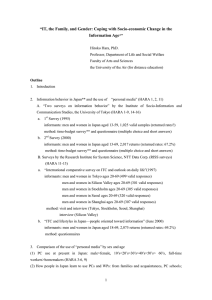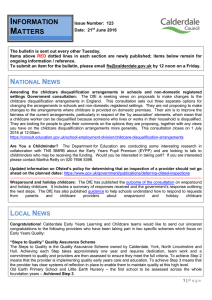JOURNEY TO ADULTHOOD
advertisement
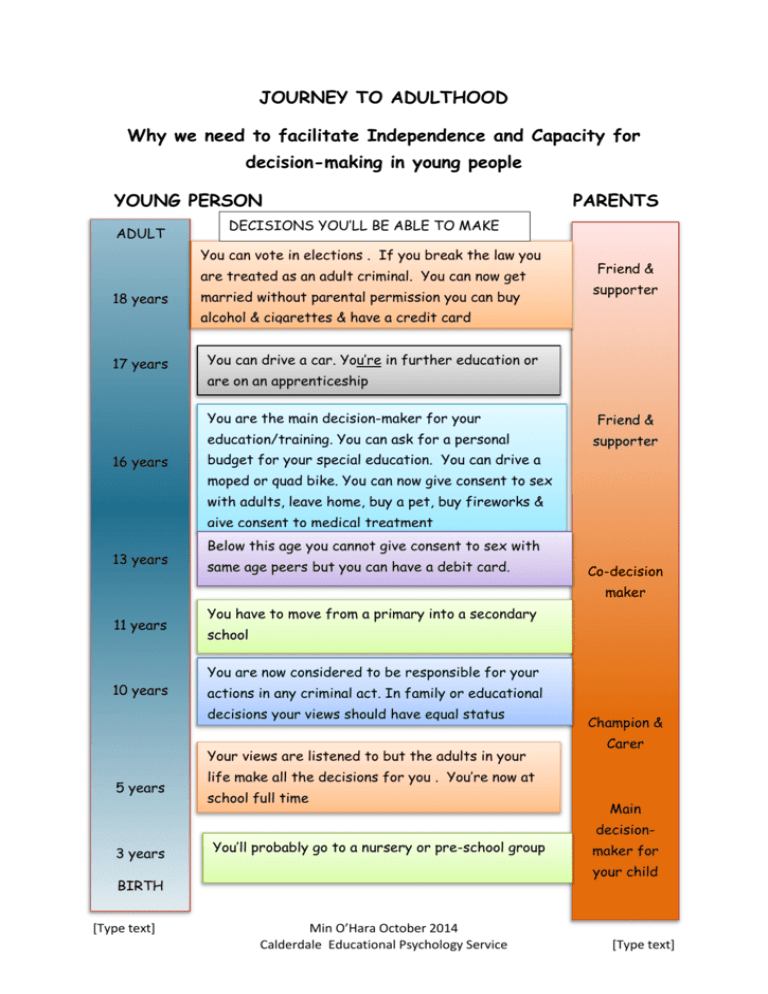
JOURNEY TO ADULTHOOD Why we need to facilitate Independence and Capacity for decision-making in young people YOUNG PERSON ADULT DECISIONS YOU’LL BE ABLE TO MAKE You can vote in elections . If you break the law you are treated as an adult criminal. You can now get 18 years PARENTS married without parental permission you can buy Friend & supporter alcohol & cigarettes & have a credit card 17 years You can drive a car. You’re in further education or are on an apprenticeship You are the main decision-maker for your education/training. You can ask for a personal 16 years Friend & supporter budget for your special education. You can drive a moped or quad bike. You can now give consent to sex with adults, leave home, buy a pet, buy fireworks & give consent to medical treatment 13 years Below this age you cannot give consent to sex with same age peers but you can have a debit card. Co-decision maker 11 years 10 years You have to move from a primary into a secondary school You are now considered to be responsible for your actions in any criminal act. In family or educational decisions your views should have equal status Your views are listened to but the adults in your 5 years 3 years Carer life make all the decisions for you . You’re now at school full time You’ll probably go to a nursery or pre-school group Main decisionmaker for your child BIRTH [Type text] Champion & Min O’Hara October 2014 Calderdale Educational Psychology Service [Type text] STRATEGIES TO SUPPORT THE YOUNG PERSON ON THEIR JOURNEY ADULT PARENTS HAVE MADE THEIR OWN JOURNEY From Carer/Controller to Friend/Supporter 18 years RESPECTED & VALUED AS AN INDEPENDENT ADULT with own views which may be different from families and 17 years not always “sensible” DEVELOPING CAPACITY Through Supported Decision-Making 16 years GIVING INFORMED CONSENT To Medical Treatments 13 years PLANNED INDEPENDENT EXPERIENCES Planned professional risk taking 11 years PERSON CENTRED PLANNING 10 years OUTCOME FOCUSSED THE VOICE OF THE CHILD 5 years 3 years BIRTH [Type text] Support to express this and being listened to, heard & respected. PARENTAL ASPIRATIONS to begin outcomes planning Min O’Hara October 2014 Calderdale Educational Psychology Service [Type text]



